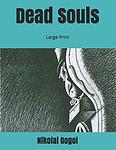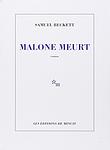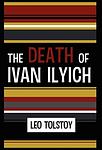The Greatest Russian, Irish Books of All Time
Click to learn how this list is calculated.
This list represents a comprehensive and trusted collection of the greatest books. Developed through a specialized algorithm, it brings together 300 'best of' book lists to form a definitive guide to the world's most acclaimed books. For those interested in how these books are chosen, additional details can be found on the rankings page.
Genres
Countries
Date Range
Reading Statistics
Click the button below to see how many of these books you've read!
Download
If you're interested in downloading this list as a CSV file for use in a spreadsheet application, you can easily do so by clicking the button below. Please note that to ensure a manageable file size and faster download, the CSV will include details for only the first 500 books.
Download-
1. Ulysses by James Joyce
Set in Dublin, the novel follows a day in the life of Leopold Bloom, an advertising salesman, as he navigates the city. The narrative, heavily influenced by Homer's Odyssey, explores themes of identity, heroism, and the complexities of everyday life. It is renowned for its stream-of-consciousness style and complex structure, making it a challenging but rewarding read.
-
2. Crime and Punishment by Fyodor Dostoevsky
A young, impoverished former student in Saint Petersburg, Russia, formulates a plan to kill an unscrupulous pawnbroker to redistribute her wealth among the needy. However, after carrying out the act, he is consumed by guilt and paranoia, leading to a psychological battle within himself. As he grapples with his actions, he also navigates complex relationships with a variety of characters, including a virtuous prostitute, his sister, and a relentless detective. The narrative explores themes of morality, redemption, and the psychological impacts of crime.
-
3. Anna Karenina by Leo Tolstoy
Set in 19th-century Russia, this novel revolves around the life of Anna Karenina, a high-society woman who, dissatisfied with her loveless marriage, embarks on a passionate affair with a charming officer named Count Vronsky. This scandalous affair leads to her social downfall, while parallel to this, the novel also explores the rural life and struggles of Levin, a landowner who seeks the meaning of life and true happiness. The book explores themes such as love, marriage, fidelity, societal norms, and the human quest for happiness.
-
4. War and Peace by Leo Tolstoy
Set in the backdrop of the Napoleonic era, the novel presents a panorama of Russian society and its descent into the chaos of war. It follows the interconnected lives of five aristocratic families, their struggles, romances, and personal journeys through the tumultuous period of history. The narrative explores themes of love, war, and the meaning of life, as it weaves together historical events with the personal stories of its characters.
-
5. The Brothers Karamazov by Fyodor Dostoevsky
This classic novel explores the complex, passionate, and troubled relationship between four brothers and their father in 19th century Russia. The narrative delves into the themes of faith, doubt, morality, and redemption, as each brother grapples with personal dilemmas and family conflicts. The story culminates in a dramatic trial following a murder, which serves as a microcosm of the moral and philosophical struggles faced by each character, and by extension, humanity itself.
-
6. The Master and Margarita by Mikhail Bulgakov
This novel is a complex narrative that weaves together three distinct yet intertwined stories. The first story is set in 1930s Moscow and follows the devil and his entourage as they wreak havoc on the city's literary elite. The second story is a historical narrative about Pontius Pilate and his role in the crucifixion of Jesus Christ. The third story is a love story between the titular Master, a writer who has been driven to madness by the criticism of his work, and his devoted lover, Margarita. The novel is a satirical critique of Soviet society, particularly the literary establishment, and its treatment of artists. It also explores themes of love, sacrifice, and the nature of good and evil.
-
7. A Portrait of the Artist as a Young Man by James Joyce
This novel is a semi-autobiographical account of a young man's intellectual and artistic development in late 19th-century Ireland. The protagonist struggles with issues of identity, faith, and nationality, ultimately rejecting the traditional values of his Catholic upbringing to pursue his own path as an artist. The book is renowned for its innovative narrative style and its exploration of themes such as individuality, freedom, and the nature of art.
-
8. Waiting for Godot by Samuel Beckett
"Waiting for Godot" is a play that explores themes of existentialism, despair, and the human condition through the story of two characters, Vladimir and Estragon, who wait endlessly for a man named Godot, who never arrives. While they wait, they engage in a variety of discussions and encounter three other characters. The play is characterized by its minimalistic setting and lack of a traditional plot, leaving much to interpretation.
-
9. The Idiot by Fyodor Dostoevsky
The book follows the story of a kind-hearted and naive protagonist who returns to Russia from a Swiss sanatorium, where he was treated for a severe epileptic condition. Despite his pure intentions, he gets entangled in a web of love, greed, and manipulation, leading to tragic consequences. The novel explores themes of innocence, love, sacrifice, and societal expectations, offering a profound critique of Russian society during the 19th century.
-
10. The Stories of Anton Chekhov by Anton Chekhov
This collection of short stories explores the complexities of human nature and society in 19th-century Russia. Written by a renowned Russian author, the stories range from humorous to tragic, often focusing on the everyday lives and struggles of ordinary people. The author's keen observation and deep understanding of human nature shine through in these tales, making them timeless classics that continue to resonate with readers today.
-
11. Doctor Zhivago by Boris Pasternak
Set against the tumultuous backdrop of the Russian Revolution, the book follows the life of a physician and poet, Yuri Zhivago, as he navigates the political and social upheaval of the early 20th century. Torn between his love for two women, his wife Tonya and his passionate mistress Lara, Zhivago's personal struggles mirror the larger societal changes occurring around him. The novel explores themes of love, war, and the human spirit, offering a poignant and complex portrait of life during a time of revolutionary change.
-
12. Fathers and Sons by Ivan Turgenev
This classic novel explores the generational divide and ideological clash in 19th century Russia. The story focuses on the relationship between a liberal father and his nihilistic son, who challenges the traditional values and beliefs of his elders. As they navigate their personal differences, the novel delves into broader themes of progress, love, and societal change, offering a poignant commentary on the tension between old and new ideas in a rapidly changing world.
-
13. Dead Souls by Nikolai Gogol
In this satirical novel, a man travels through Russia buying up the titles to deceased serfs (or "souls") from their naive landowners, under the guise of a get-rich-quick scheme. However, his real plan is to use these "dead souls" to create a phantom estate and secure a massive loan. The story explores the corruption and greed prevalent in 19th-century Russian society and provides a unique perspective on the human condition.
-
14. Demons by Fyodor Dostoevsky
"The Possessed" is a complex political novel set in a provincial Russian town, exploring the destructive influence of radical ideologies on society. The narrative revolves around a group of revolutionaries, their philosophical debates and their destructive actions, driven by nihilism and anarchism. The story is a critique of the political and social chaos of the time, showcasing the author's deep understanding of human psychology and his profound insights into the human condition. It is an exploration of faith, reason, and the nature of freedom and is considered one of the most significant works of Russian literature.
-
15. One Day in the Life of Ivan Denisovich by Aleksandr Solzhenitsyn
This novel provides a detailed account of a single day in the life of a prisoner, Ivan Denisovich, in a Soviet labor camp in the 1950s. The narrative follows Ivan as he navigates the harsh realities of his daily routine, from the moment he wakes up to when he goes to bed. The book provides a stark portrayal of the brutality and inhumanity of the Soviet gulag system while also highlighting the resilience and dignity of the human spirit under such oppressive conditions.
-
16. The Gulag Archipelago by Aleksandr Solzhenitsyn
"The Gulag Archipelago" is a comprehensive and stark account of the Soviet Union's forced labor camp system. The narrative, based on the author's own experiences as a prisoner and on extensive research, documents the history, operation, and life inside the Gulag system. It also provides a critical examination of the regime's legal system, police operations, and political leadership. The book is an intense indictment of the Soviet Union's totalitarian regime, revealing its brutality, inhumanity, and vast scale of its prison camp network.
-
17. Collected Poems of W. B. Yeats by William Butler Yeats
This book is a comprehensive collection of poems by a renowned Irish poet. The collection spans his entire career, showcasing his evolution as a poet, from romantic and aesthetic works to more complex, mature pieces reflecting his interest in spirituality and Irish mythology. The book includes his most famous works, as well as lesser-known pieces, providing a thorough overview of his contribution to 20th century literature.
-
18. Molloy by Samuel Beckett
"Molloy" is a complex and enigmatic novel that follows the journey of its eponymous character, an elderly, disabled vagabond, who is tasked with finding and killing a certain person. The narrative is split into two parts: the first is told from Molloy's perspective as he navigates his way through a strange and often hostile world, while the second follows a detective named Moran who is assigned to find Molloy. The novel is renowned for its challenging narrative structure, its bleak and absurdist humor, and its profound exploration of themes such as identity, existence, and the human condition.
-
19. Oblomov by Ivan Goncharov
The book is a satirical critique of the nobility in 19th century Russia, focusing on the titular character, a lazy and apathetic nobleman who prefers to daydream and live in his own fantasies rather than engage with the real world. His indolence is contrasted with the energetic and ambitious character of his friend who tries to get him involved in societal affairs and business. The protagonist's lethargy and inability to adapt to changing times symbolize the decay and stagnation of the Russian nobility.
-
20. At Swim Two-Birds by Flann O'Brien
This novel is a complex, metafictional work that weaves together three separate narratives. The first is about a lazy, hard-drinking college student living with his uncle, the second is about a devilish Pooka and a loquacious old man, and the third is about a fictional character named Finn who seeks revenge on his author for creating him poorly. The narratives eventually intersect in a unique and humorous way, challenging traditional ideas of story structure and character autonomy.
-
21. Finnegans Wake by James Joyce
This complex and challenging novel is renowned for its experimental style and intricate, dreamlike narrative. It explores the story of a publican in Dublin, his wife, and their three children, but the plot is not linear and often veers into surreal and abstract territory. The book is dense with linguistic games, puns, and allusions to a myriad of cultural, historical, and mythological sources. The narrative is circular, ending in the middle of a sentence that is completed at the start of the book, embodying the cyclical nature of life and history.
-
22. Malone Dies by Samuel Beckett
"Malone Dies" is a narrative that delves into the mind of an elderly man who lies in a decrepit room, slowly dying. Throughout the novel, the protagonist grapples with his impending demise, while reflecting on his past. He also creates characters and stories within his mind to cope with his solitude and despair. The novel, characterized by its stream-of-consciousness style and bleak outlook, is a profound exploration of the human condition, mortality, and the nature of existence.
-
23. The Death of Ivan Ilyich by Leo Tolstoy
The book is a poignant exploration of mortality and the human condition, focusing on a high-court judge in 19th-century Russia who lives a seemingly successful and conventional life. However, when he is confronted with a terminal illness, he begins to question the meaning and value of his life, leading to an existential crisis and eventual spiritual awakening. Through his struggle, he comes to realize the superficiality of his previous life and the importance of genuine human connection. His story is a profound commentary on the nature of life, death, and the pursuit of happiness.
-
24. The Death of the Heart by Elizabeth Bowen
"The Death of the Heart" is a novel set in the interwar period, focusing on a sixteen-year-old orphan girl who moves in with her wealthy half-brother and his wife in London. As she navigates the complexities of her new social environment, she develops a crush on a friend of the family, leading to a series of misunderstandings and betrayals. The novel explores themes of innocence, love, betrayal, and the harsh realities of adulthood.
-
25. Notes from the Underground by Fyodor Dostoevsky
This novel is a profound exploration of the human psyche through the eyes of a bitter and isolated retired civil servant living in St. Petersburg. The protagonist, a self-proclaimed "sick" and "spiteful" man, delves into his past experiences and personal philosophies in a series of rambling and often contradictory monologues. His existential musings touch on themes such as free will, determinism, and the nature of human action, often challenging the prevailing ideologies of his time. The narrative provides a deep and unsettling insight into the darker aspects of human consciousness.
Reading Statistics
Click the button below to see how many of these books you've read!
Download
If you're interested in downloading this list as a CSV file for use in a spreadsheet application, you can easily do so by clicking the button below. Please note that to ensure a manageable file size and faster download, the CSV will include details for only the first 500 books.
Download























